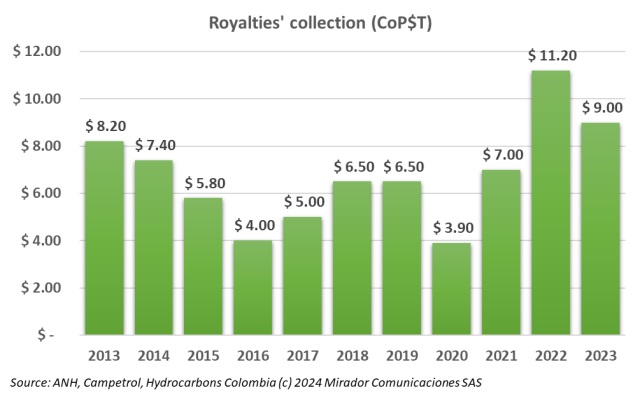The upward trajectory continues with crude oil prices steadily climbing.

Campetrol, with information from the National Hydrocarbons Agency (ANH), published the royalties’ collection figures for 2023.
The Administrative Court of Cundinamarca rejected the E&P’s lawsuit, which sought compensation of over CoP$20B for damages and more than US$12M for opportunity costs, El Tiempo reported.
The Constitutional Court received a proposal from Minister of Finance (MinHacienda) Ricardo Bonilla outlining four ways to mitigate the effects of a ruling that overturned the prohibition on extractive companies deducting royalties from income tax.
Former congressman Jorge Enrique Robledo made waves at the Ecopetrol (NYSE: EC) shareholders’ assembly by challenging the agenda and proposing changes he believes are essential to prevent further financial losses for the company’s shareholders.
The National Planning Department (DNP) has swiftly responded to President Gustavo Petro’s recent announcement regarding a reform on royalties, emphasizing prioritizing issues like clean water over the development of infrastructure projects, such as fourth-generation roads.
Colombia’s self-sufficiency relies on the 302 contracts issued in previous years, covering over 15 million hectares.

The National Administrative Department of Statistics (DANE) reported the value of Colombian exports during January 2024.
The Territorial Renewal Agency (ART) made public the Project Bank eligible for funding through the Works for Taxes mechanism, offering options such as the Trust Option and Agreement.
As Colombia grapples with economic slowdown across key sectors like industry, commerce, and construction, attention turns to its low investment levels, particularly in private capital.